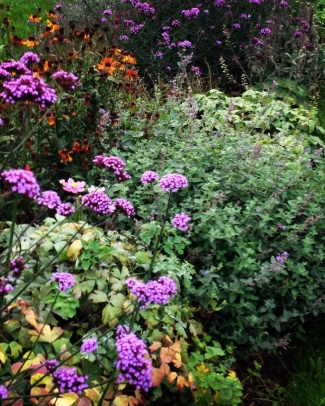As we head into the warmer weather and it becomes more appealing to head back out into the garden, there’s plenty of simple things that you do to keep your garden looking great (although the more hardy gardeners will know there’s plenty to be done throughout the winter as well!).
So here’s some of my favourite methods and ideas for getting the most out of your garden, without breaking the bank or needing to be the next Alan Titchmarsh to do.
And don’t forget, if you’d like to learn more about to put some of these tips into practice, I’m running masterclass sessions through the year in our community gardens on a range of different gardening themes, so pop down and have a go!
1) Feed beds and borders with any good general fertiliser or organic alternative. Sprinkle it all over the soil, applying it right underneath shrubs and round the base of climbers, perennials and clumps of bulbs. Trickle a line of fertiliser along the base of all your hedges – they’ll be feeling fairly starved after this winter and spring is the perfect time to feed them.
2) Take cuttings from new growth of shrubs and perennials.
3) Tidy borders, weed and mulch with compost or manure. This will give them a boost for the new season’s growth.
4) Lift and divide herbaceous perennials. Not only can you get more free plants for your garden this way but it will help the existing perennials to thrive over the coming months.
5) During mid spring the lawn can start to be mown regularly. Apply a weed and feed to get your lawn in tip top condition.
6) Many plants including vegetables can be grown from seed outdoors which can cut down the cost of growing your own and any floral displays from annuals, biennials and herbaceous perennials. Cornflower, californian poppies, sunflower, poached egg flower) and nasturtiums can all be grown successfully from seed. Vegetables such as beans, carrots, onions and peas can also be grown outside from seed. Outdoor sowing is ideal for people with small gardens or little space for greenhouse propagation.
7) If you haven’t got one already, consider installing a water butt to collect rainwater from your roof. Even a shed, greenhouse or garage roof creates a considerable amount of run off worth collecting. Installation of water butts is easy with the readily available kits you can buy from DIY stores.
8) If you carry out garden hedge trimming, check that there are no birds nesting, as it is an offence under the Wildlife & Countryside Act 1981 to damage or destroy the nest of any wild bird while it is in use or being built. The bird nesting season is usually considered to run from 1st March to 31st July (though it may last longer for certain species or multiple broods so always check if in doubt). Conifer hedges, make sure you do not trim them after August, as this can encourage bare patches to develop in the hedge.
9) All weeds can be controlled without weedkillers and if you hoe during the spring when weed seeds germinate this can be an effective control method. More persistent weeds may be hard to eradicate but hand weeding with a fork is also a good method even if it is hard work! Mulching is another effective way of supressing weeds and can smarten up shrub beds quickly and easily. It also helps to reduce evaporation of moisture so reducing the frequency of watering later on in the season.
Our Letchworth Gardening City campaign is home to promoting gardening in Letchworth, with a number of blogs and events across the town to help you get more involved in the garden. Make sure to follow us on Instagram as well to see more from the gardening groups and activities running throughout the year.


